Antisemitism & Anti-Americanism Are Rising — What You Can Do
What the World Needs Now — Moral Beacons for America’s 250th
A Story of Moral Clarity to Light the Way
Sometimes you witness something that feels like a glimpse of the divine. I felt that at a recent gala for Best Buddies — the nonprofit founded by Anthony Kennedy Shriver to support people with intellectual disabilities. There, Shriver shared a powerful story about his aunt, Rosemary Kennedy.
At age 23, Rosemary underwent a lobotomy — a tragic intervention her father, Joseph Kennedy, was told would “fix” her. But as Anthony reminded us: no one needs fixing.
“No matter how disabled or different someone may be,” he said, “everyone has a gift from God.”
Then came a stream of young performers — not defined by special needs, but by extraordinary gifts and courage. They mesmerized us.
It was an evening full of grace — a joyful celebration of human dignity, potential, and divine design. And it left me with a realization that feels both ancient and urgently needed:
Every person is created in the image of God, sent into the world to contribute their unique light.
What the world needs now is a revival of the dignity of difference — and the moral clarity to see past the labels that divide us.
Instead of sorting people into moral categories based on physical traits, what if we searched for their uniquely divine nature? What if we reclaimed the idea — foundational to both America and Judaism — that every person is a soul with agency, capable of goodness and redemption?
At a time of rising division and violence, remembering the dignity of difference may be the only way to preserve the America that Abraham Lincoln called “the last best hope of Earth,” and the best way to honor the 250th anniversary of the founding creed declared on July 4, 1776.
But not everyone sees difference this way. A darker moral vision now dominates our education system, universities, and our politics — one that dehumanizes difference, corrupts justice, and has turned antisemitism into a cause for applause.
Moral Beacon: Dignity doesn’t need fixing. It needs honoring.
A New Celebrity, an Old Hatred, and a Dark Worldview
Just before the Best Buddies gala — and the start of America’s 250th birthday year — a new political celebrity was crowned in New York City: Zohran Mamdani, a self-described anti-capitalist and “democratic socialist” who denounces Western civilization but refuses to condemn the chant “Globalize the Intifada.”
Mamdani presents himself as a bold truth-teller standing up for the oppressed. But beneath the slogans is a dark worldview — one that weaponizes difference, sorts humanity into oppressors and oppressed, glorifies resistance regardless of victims, and rationalizes violence in the name of justice.
I wrote about this moral inversion in my post-October 7th column: How Do We Ensure All Babies Matter?
Why did the terror attacks of 9/11 provoke near-universal condemnation, while the largest mass murder of Jews since the Holocaust triggered instantaneous global rallies in support of the terrorists? Even international feminist groups ignored the rape, murder, and kidnapping of women in Israel.
Despite graphic bodycam footage, eyewitness testimony of beheadings, rape, and torture — and Hamas leaders pledging to repeat the attacks “until Israel is annihilated” — the protests didn’t condemn the perpetrators. They condemned the victims. Israel was accused of genocide — while actual genocides in Syria, Yemen, and Darfur were ignored.
To understand the roots of this mindset, consider then-Stanford student Julia Steinberg’s reflection.
In her essay Why My Generation Hates Jews, Julia explains that her peers, raised on social media, absorb the world in “tweet-length and infographic-sized” slogans. The oppressor/oppressed framework, she writes, became their “intellectual north star.” And once Jews were deemed “oppressors,” Israel became indefensible.
“The oppressor is always wrong, and the oppressed are always right.”
That moral confusion became a drumbeat — and in May, the global intifada came to America:
In Washington, D.C., a young couple — Sarah Milgrim and Yaron Lischinsky — were murdered outside the Jewish Museum by a man shouting “Free Palestine.”
In Boulder, an illegal immigrant firebombed a rally for Hamas hostages. An 88-year-old Holocaust survivor later died of her burns.
These weren’t isolated crimes. They were the natural consequence of a worldview that flips victim and villain — and incites violence in the name of justice.
It’s also happening where we work and volunteer, and each of us can be a moral beacon in resisting it.
As I shared in my post What I Learned in My Theater Board’s Gender Debate, I served on the board of a local theater for two decades — it was my happy place. When young staffers proposed a Diversity Committee to promote “inclusivity,” I joined.
Though intended to value difference, diverging views were met with suspicion and scolding. I found our conversations divisive, disheartening, and increasingly untethered from our mission. The process felt performative, yet offered a glimpse into moral tribalism.
One moment stands out. In a private conversation following a committee meeting, a staffer (who left the organization shortly thereafter) and I were discussing historical trauma. I’d cited Ukraine and Israel as cautionary tales of how false land narratives can incite conflict.
The response? “But the Jews have only been in Israel for 75 years.”
Later, after I shared how my grandmother had lost family in the Holocaust and faced antisemitism in America, I asked if we can ever move from grievance to gratitude.
The reply: “But the Jews control so much of the world.” That wasn’t ignorance. It was indoctrination.
When I later shared the exchange with theater colleagues — staff and board — they were horrified and relieved the staffer had moved on. Their reaction reminded me: this ideology isn’t everywhere. But it spreads quickly — especially when it goes unchallenged.
That’s the larger point. Ideas born in elite institutions and activist circles don’t stay there. They filter into nonprofits, workplaces, school boards — and eventually into policy. What begins as fringe soon becomes institutionalized.
Absorbed in classrooms, affirmed by media, and defended with moral certainty, this is moral tribalism: the belief that justice flows from identity, not action. In this worldview, the oppressed are always righteous, the different always suspect — and violence is justified if aimed at the “right” target.
Mamdani didn’t invent this mindset. He’s what happens when it graduates from the classroom into public office.
Unless we challenge it, moral tribalism will continue replacing the self-evident truths America was founded on — human equality, the dignity of difference, and the belief that we are all created in the image of God — with false creeds of grievance, guilt, and group blame.
Moral Beacon: Truth isn’t tribal. It’s universal.
From Education to Indoctrination: The Betrayal of Young Minds
To understand how moral tribalism spreads, follow the pipeline — from resistance slogans to justifications for murder.
It begins in K–12, where education has been hijacked. Instead of building resilience and civic virtue, children are taught to see themselves through inherited guilt or grievance — sorted into victims and oppressors, with identity replacing individuality. This isn’t education. It’s indoctrination. And it’s harming young minds.
It isn’t just bad curriculum. It’s about who controls the institutions.
As David Bernstein warns in Why Fighting Antisemitism in K–12 Schools Isn’t Enough, radical activists are capturing school boards and teachers’ unions, pushing ideologies hostile to America, Israel, and Jews.
In California, Jewish parents who raised concerns were vilified by school board members for their “economic power” and “segregationist” past. This is how antisemitism spreads — not just through lessons, but through institutional power.
We can’t just complain. To restore education to its proper mission, we must run for school boards, support reform candidates, and reclaim our schools.
Ideological conformity hardens in universities, where viewpoint diversity has collapsed since the 1990s, as social psychologist Jonathan Haidt observed. Entire departments now revolve around “studies” — grievance-based disciplines that elevate indignation, tribalism, and imported hatreds, often funded by regimes in Qatar and China.
Groups like Heterodox Academy are working to reverse the trend — urging universities to recommit to open inquiry and intellectual freedom.
At Stanford, Israeli scientist Shay Laps was hired to develop breakthrough insulin treatment but was driven out after his research was sabotaged, not for his science, but for being Jewish and Israeli. His lawsuit outlines pervasive antisemitism, now acknowledged by Stanford itself. Jew-hatred doesn’t just harm Jews. It holds back humanity.
A recent report in The Free Press – Qatar and China Are Pouring Billions into Elite American Universities – explains why a focus on elite schools matter:
Part of the answer lies in a study published last year in Frontiers of Social Psychology that found a strong correlation between universities that receive foreign funding from authoritarian countries and a rise in antisemitic incidents. The study concludes “that providing massive financial support to campuses with ascendant illiberalism serves the interests of foreign actors hostile to the U.S. in particular or liberal democracy in general.”
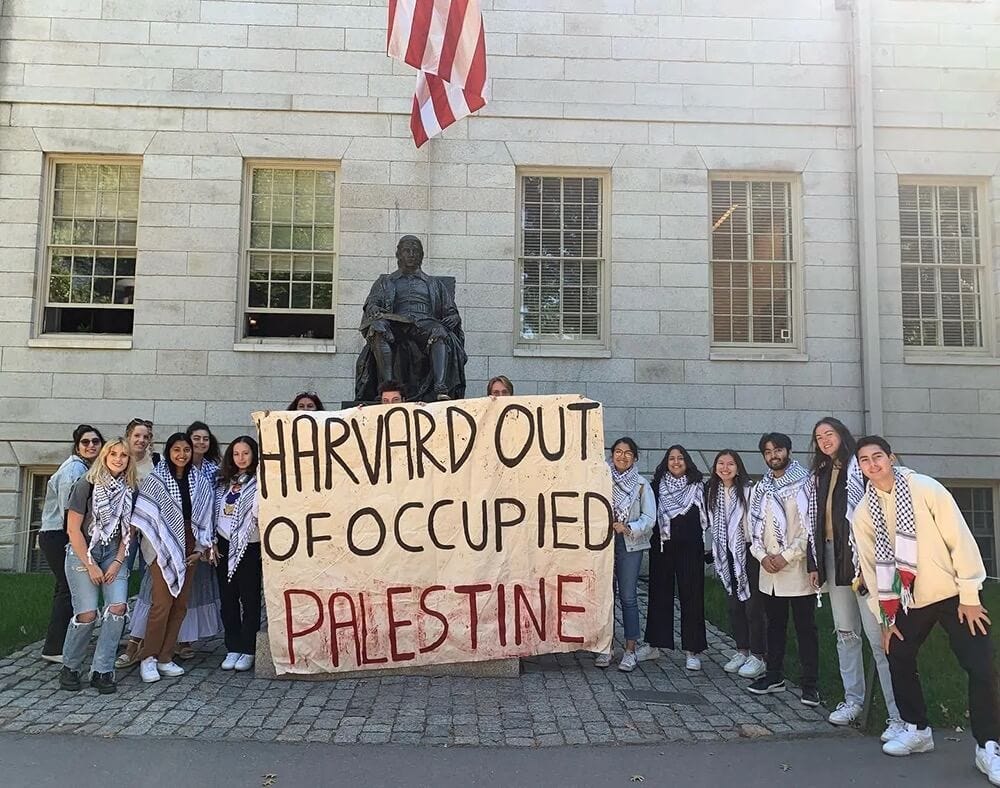
At my alma mater, Tufts — which receives Qatari and Chinese funding — a course titled “Colonizing Palestine” was offered in Colonialism and Gender Studies, with no counterpoint.
Dissent isn’t debated. It’s punished. The result? Students who owe more than ever for degrees worth less than ever. No wonder 51% of Gen Z graduates say college was a waste of money — burdened with debt, armed with slogans, and primed for resentment.
Not surprisingly, while 75% of Americans support Israel, nearly half of 18–24-year-olds say they support Hamas, according to June’s Harvard/Harris poll.
From there, the worldview metastasizes in the media. Many journalists — trained in the same echo chambers — amplify narratives that fit the script. The New York Times referenced Israel as a genocide perpetrator nine times more often than it covered Rwanda during its actual genocide.
When UN official Tom Fletcher falsely claimed that 14,000 babies in Gaza would die within 48 hours, major outlets ran with it. NBC, TIME, and Good Morning America all spread the smear, even after it was debunked — just one day before the D.C. shooting.
We’ve raised a generation ill-equipped to challenge these narratives. Knowledge-seeking and critical thinking are out. Identity, grievance, and emotional conformity are in.
Elias Rodriguez – the D.C. shooter – is a cautionary tale. A college-educated Marxist, he posted “Death to AmeriKKKa” and echoed Hamas propaganda nearly word for word. In his manifesto, he wrote: “Perpetrators and abettors have forfeited their humanity.”
That’s the language of genocide — taught in American classrooms.
Zohran Mamdani didn’t come out of nowhere. At Bowdoin College, he founded its Students for Justice in Palestine chapter. His rise – documented in The Education Of Zohran Mamdani – proves the system is working as designed.
And as a candidate for mayor, Mamdani proposed shifting property tax burdens from poorer neighborhoods to what he calls “richer and whiter” ones — effectively codifying group blame into public policy
This didn’t happen overnight. When Harvard kept ROTC off campus for 40 years, it sent a message: defense of country is suspect. Patriotism is passé. In that vacuum, grievance politics grew. And when grievance needs a scapegoat, it often finds the Jews.
While moral tribalism has taken root among progressives, antisemitic narratives are also gaining traction on the populist right — where figures like Tucker Carlson and Candace Owens amplify conspiracy theories that echo anti-Israel animus.
Carlson has praised voices like discredited WWII “historian” Daryl Cooper, who called for bombing Tel Aviv after Iran was attacked. He has increasingly used his platform to demoralize Americans: mocking our history, undermining American exceptionalism, and giving our adversaries — from Putin to Iran’s president — a stage to lecture us about morality. Owens has accused Jews of “exploiting” victimhood, questioned whether Joseph Mengele committed atrocities and maligned the American-Israel alliance.
Antisemitism isn’t just un-American — it’s anti-American. And the more we trade our founding truths for tribal lies, the more we betray ourselves and our children’s future.
Moral Beacon: A just society teaches its children how to think, not what to think.
From Collapse to Clarity: The War Hamas Started, the Peace They Didn’t Expect
On October 7, 2023, Hamas launched a war to end normalization and unite the Arab world against Israel. It was the worst security failure in Israeli history, shaking public faith in the country’s vaunted defense.
Just 21 months later, Hamas lies shattered. Iran’s proxy network is in disarray.
As Israeli Defense Minister Israel Katz noted last month, Israel has “defeated Hamas, crippled Hezbollah, blinded Iran’s air defenses, damaged its weapons production, toppled Assad’s regime in Syria, and struck a blow to the axis of evil. The Houthis are the last to stand.”
It echoes the prophecy of Genesis 12:2–3:
"I will make you into a great nation, and I will bless you… I will bless those who bless you, and whoever curses you I will curse; and all peoples on earth will be blessed through you."
Combined with Israel’s battlefield breakthroughs, joint U.S.–Israeli strikes degraded Iran’s nuclear program, weakened its proxies, and launched a historic realignment — one that promises a safer, more stable, and more prosperous Middle East.
Syria is exploring a non-aggression pact. Saudi Arabia edges toward normalization. In Hebron — a longtime Hamas stronghold — five senior sheikhs signed a letter recognizing Israel as a Jewish state and pledging peace.
The irony is stunning: A massacre meant to erase Israel has instead cemented its regional legitimacy.
And yet, here at home, many have been taught to distrust the civilized — and excuse the barbaric.
As Brendan O’Neill — a British writer with roots in the Labour movement — told Joe Rogan:
“Hamas committed a genocidal assault, and yet it’s Israel that’s accused of genocide. It’s a complete inversion of truth and morality.”
His message demands one honest question:
Do we want to live in a world where terrorists can hide behind civilians and win — simply because we’re too afraid to call evil by its name?
Moral clarity doesn’t mean moral perfection. It means recognizing the difference between flawed democracies that protect human dignity — and terrorist regimes that destroy it. That’s why the American-Israeli alliance matters more than ever.
In a world drowning in moral relativism, the friendship between these two nations — rooted in shared values and a commitment to liberty — stands as one of history’s greatest alliances.
Moral Beacon: Peace begins when evil is named.
Reclaiming Truth, One Conversation at a Time
If moral clarity begins by naming evil, it continues by equipping people to stand against it — with courage, compassion, and conviction. That doesn’t mean shouting louder. It means making better arguments.
In a culture that rewards outrage and punishes dissent, many well-meaning people stay silent — not because they’re cowards, but because they don’t know what to say, or fear saying the wrong thing.
But you can’t go wrong asking clarifying questions. When posed with sincerity, they can disarm hostility, expose moral confusion, and persuade the persuadable.
The right questions help people check their premises, explore unconsidered facts, own their answers, and arrive at your point of view while feeling heard:
Don’t Israel’s leaders have a duty to protect their citizens?
What would you want your government to do if terrorists used civilians as shields to attack your family?
Is the Free Palestine movement’s goal to help Palestinians — or to use them to demonize Israel?
If Palestinians had moral leaders who believed their lives mattered, wouldn’t peace be more likely?
These aren’t rhetorical tricks. They’re invitations for people to think again. For hostiles, they expose the weakness of the narrative. For allies, they model the courage of speaking up.
Because the only way to reclaim truth is one conversation at a time.
Moral Beacon: Asking the right questions can break the wrong spell.
Conclusion: What the World Needs Now
We live in confusing times — but confusion is not our inheritance.
We are heirs to a tradition that proclaims no one needs fixing and everyone has a gift worth honoring. That was Anthony Shriver’s message at the Best Buddies gala. And it’s ours to carry forward.
Today, a rising generation is being taught the opposite — that identity defines morality, grievance defines justice, and difference needs to be “fixed.” From Tehran to TikTok, this worldview is spreading. But it won’t prevail, because we have truth and moral clarity… and each other.
Contrast that with Iran’s dream: a world fixed through death, domination, and ruin. A regime that imposes its will with terror — and acid.
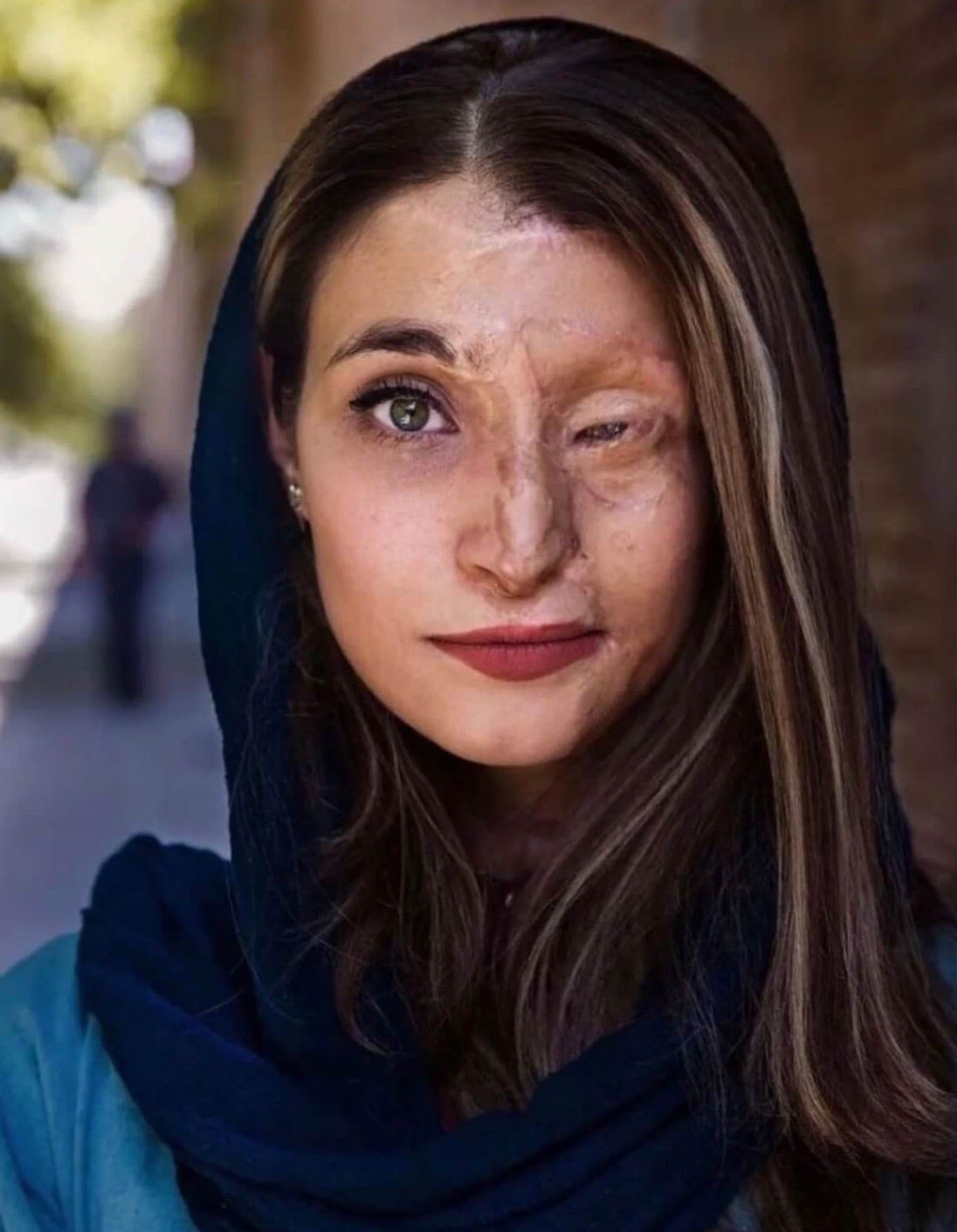
When terrorism is your ideology, ruin is your legacy:
We don’t need fixing — and we don’t need to justify our right to exist, to flourish, or to protect what we love. Whether as Americans or Jews, the way to counter hatred is by living our values and passing them on with purpose and pride.
At 250 years old, America remains the world’s greatest experiment in self-critical, multiracial democracy. The truths declared in 1776 united a divided people — and built the freest, most decent, and most prosperous nation in history. Reviving those founding ideals can unite us again today.
Civilizations don’t thrive by shaming their inheritance. They thrive through hope, responsibility, and the courage to tell their story well.
The Jewish people are the longest-living civilization in history — not because they’re powerful, but because they’ve stayed faithful to their values and passed them on. That’s the key to America's future, too.
If we want to preserve and pass on what matters, we must reform the institutions shaping the next generation. That means K–12 schools that teach academics, not grievance, and universities that elevate inquiry over ideology.
Together, as “Best Buddies,” America and Israel are doing more than defending liberty — they’re remaking the Middle East and inspiring a better world. And we, their citizens and inheritors, have a duty to ensure the story continues.
This is my prayer:
May we remember the rich American and Judeo-Christian inheritance that gave rise to our freedoms — and may we secure that future with wisdom, courage, and grace.
May we lead lives worthy of honor.
May we become, together, what the world needs now: Moral beacons.
I’d love to hear your thoughts — especially if you see things differently. I’ve appreciated 2WAY — a new news and commentary platform launched by veteran journalist Mark Halperin. It brings people with differing views into real conversation. That’s what I want for this page. If something made you think again — click the comment button below.
If this moved you, share it with someone who needs to hear it. This post is free.


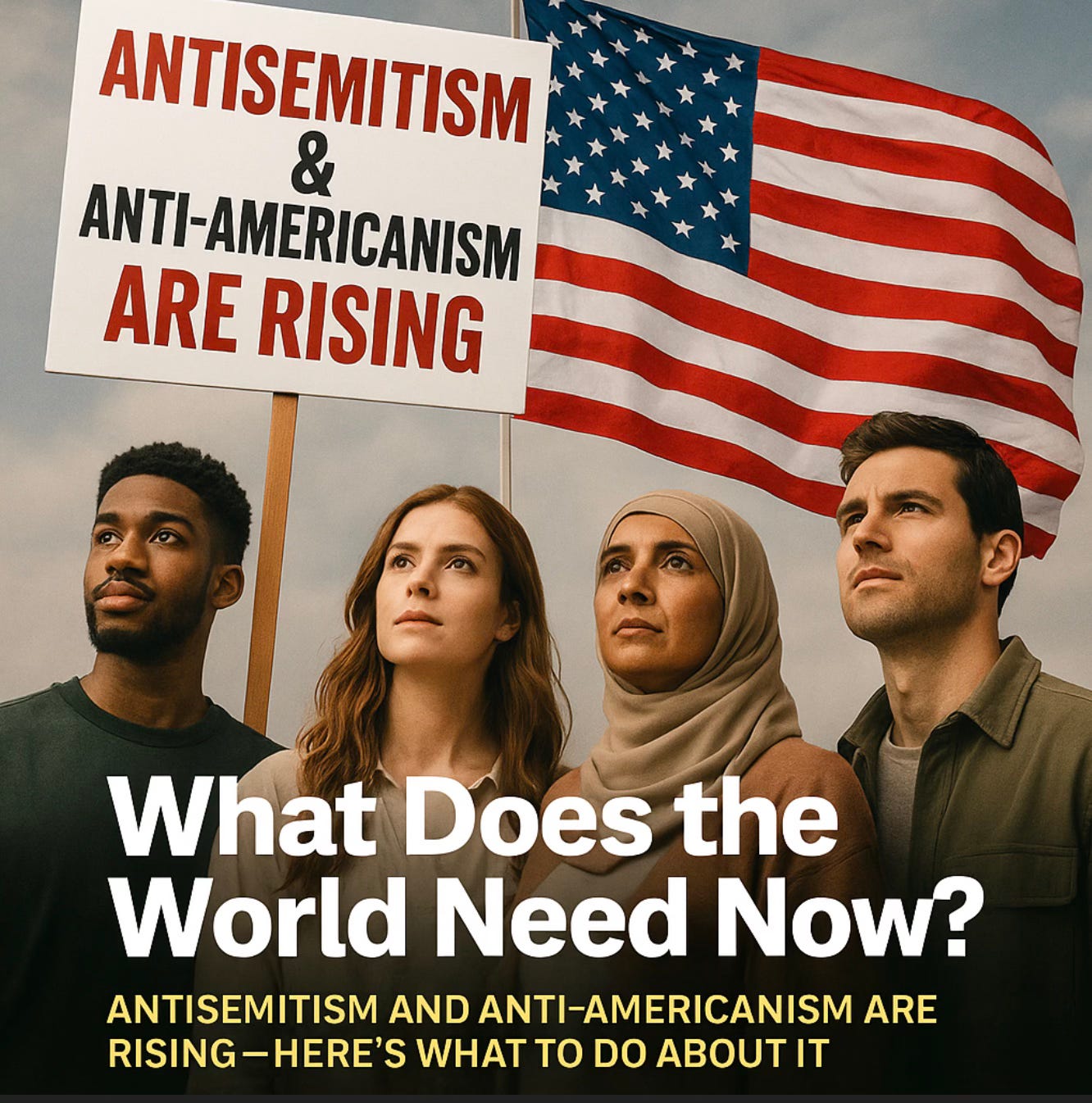
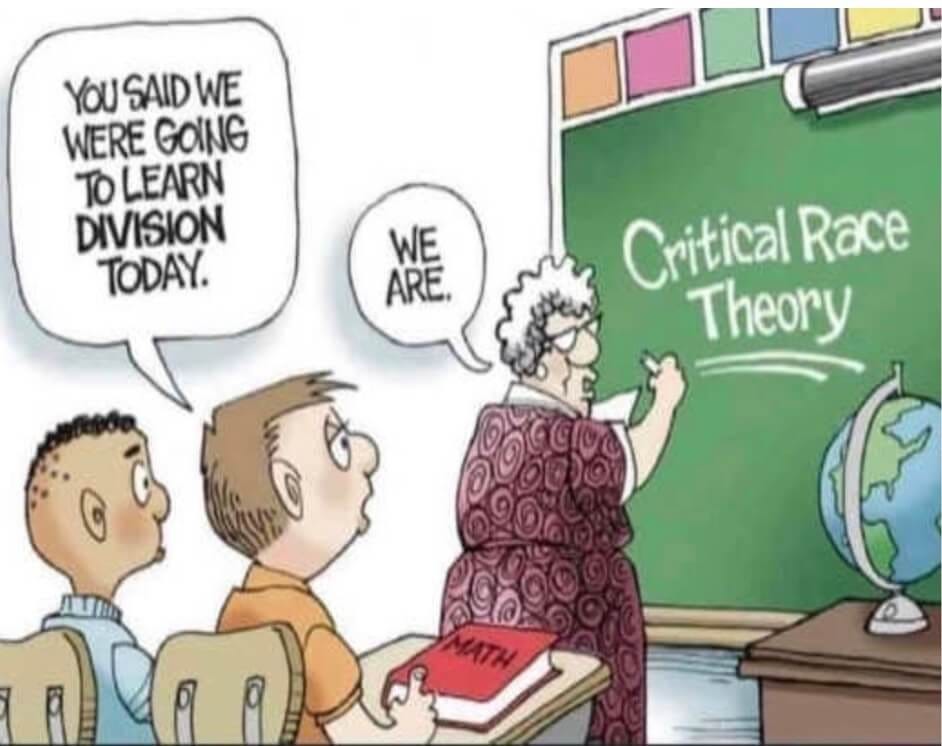
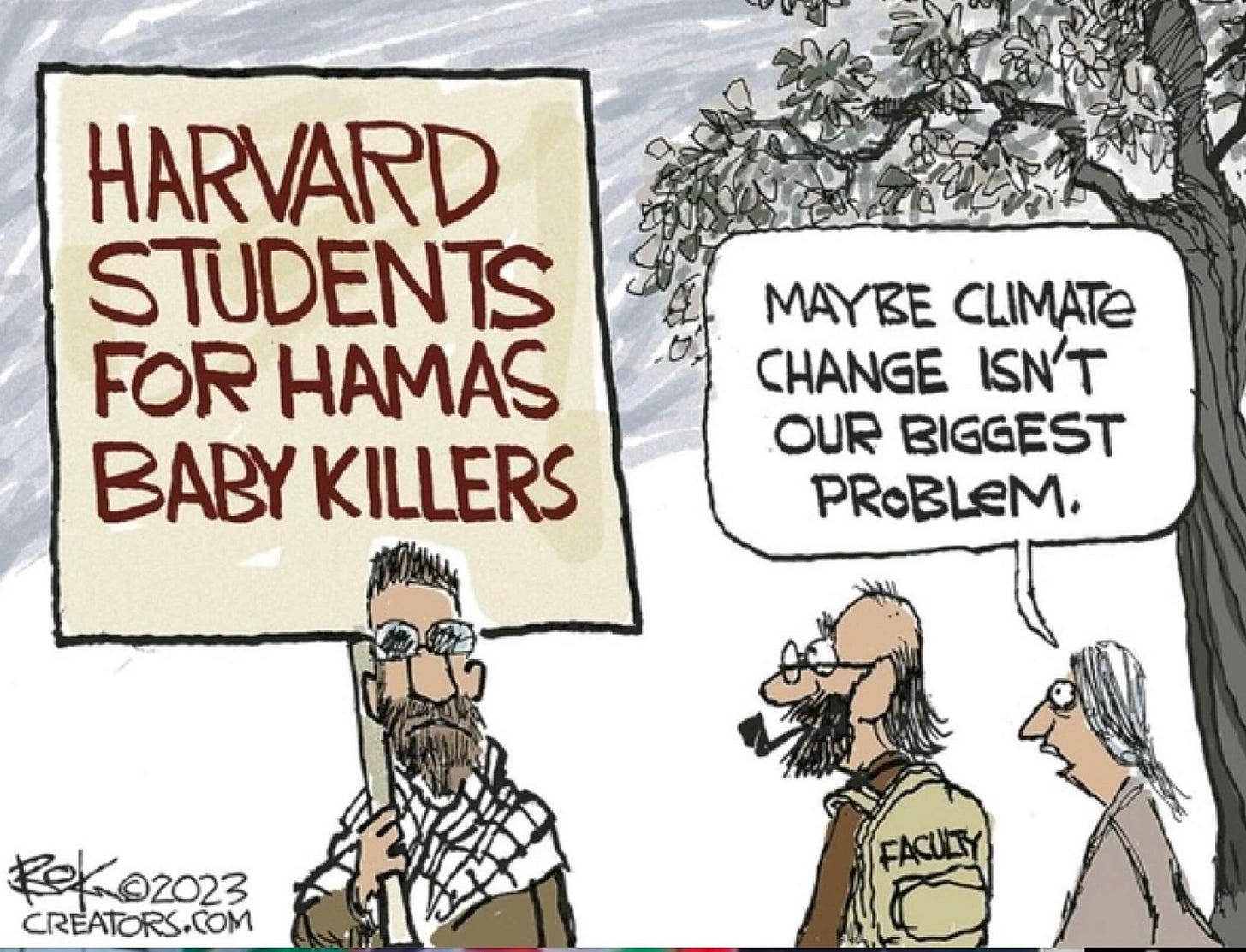
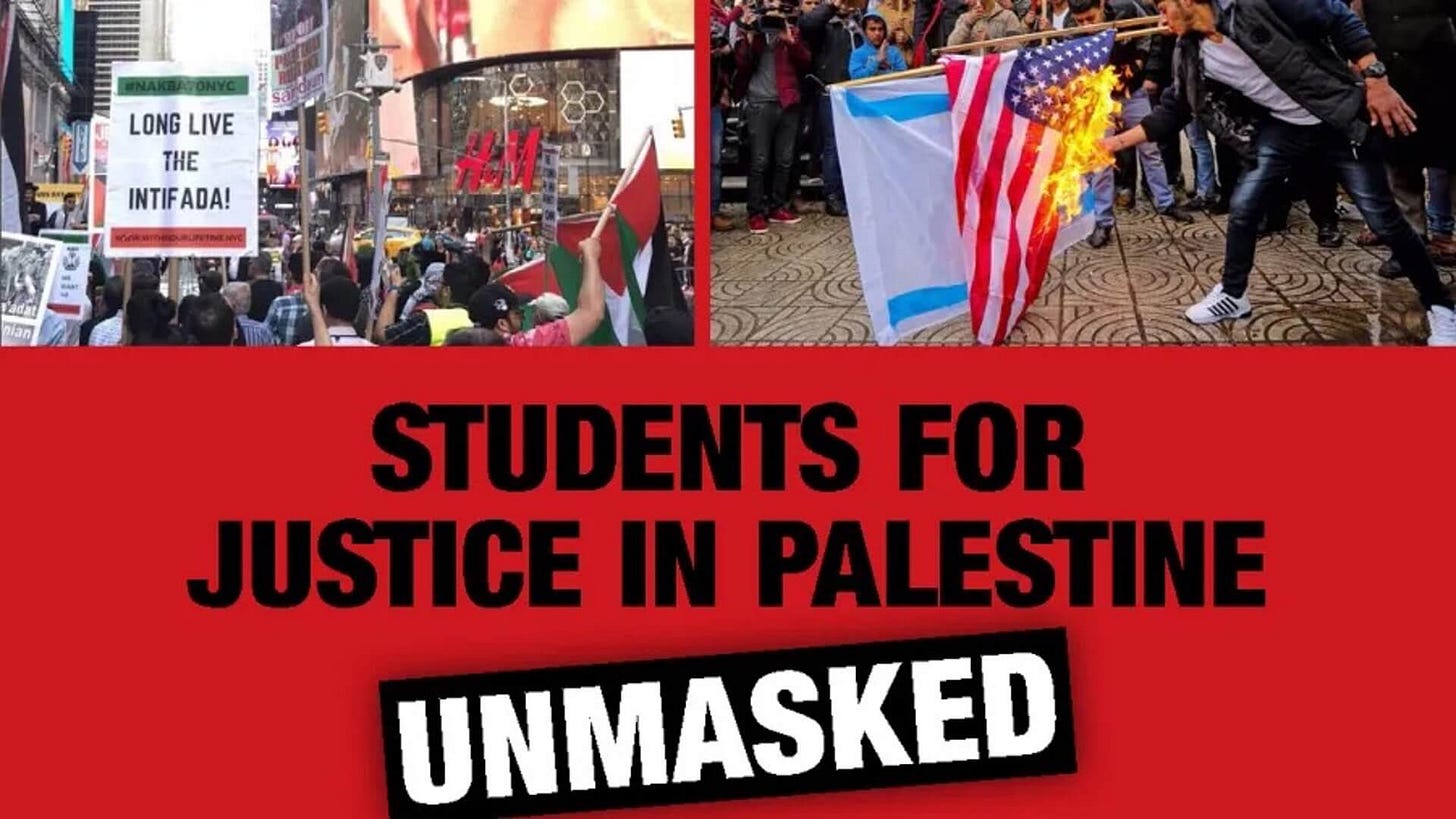
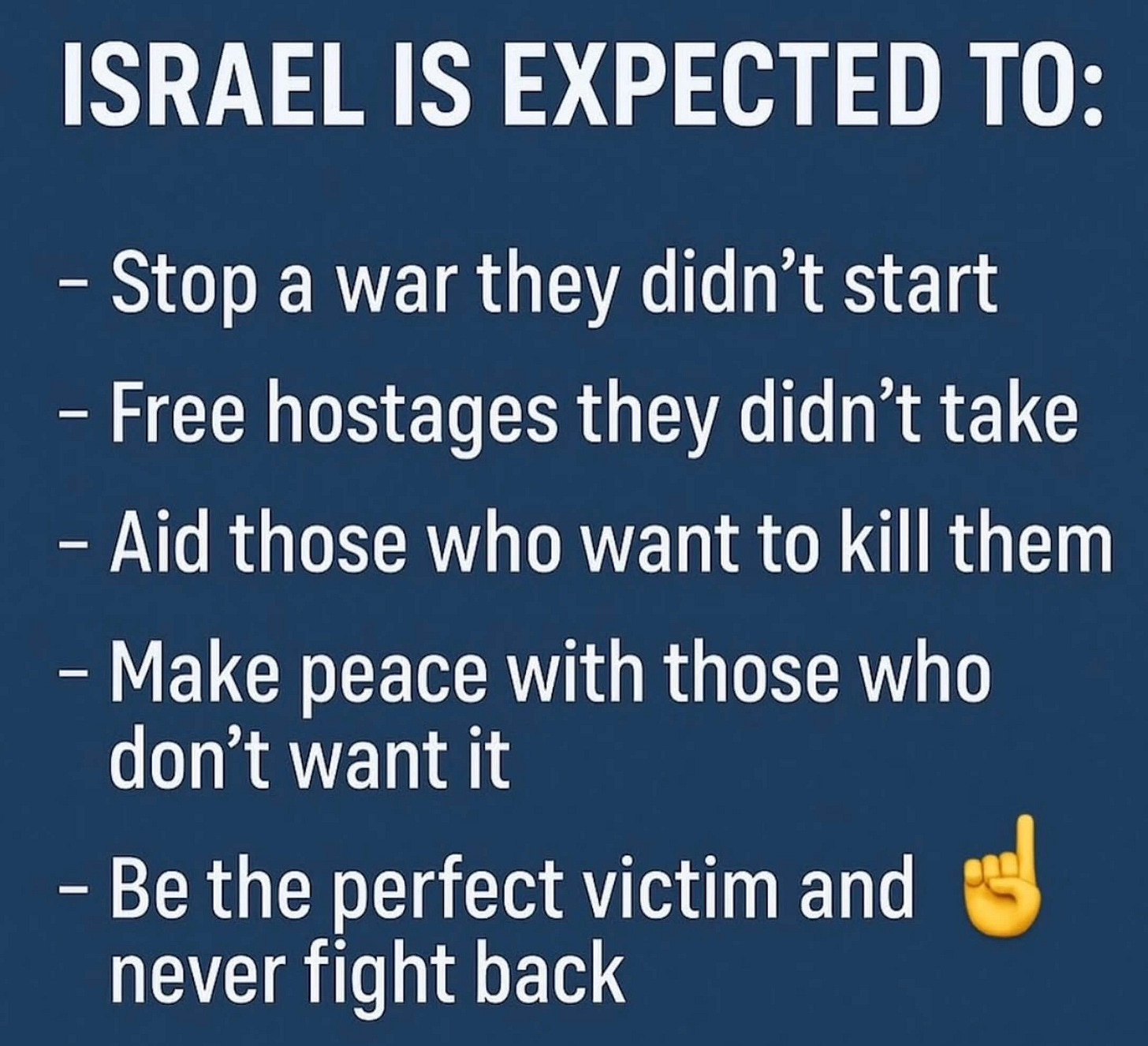

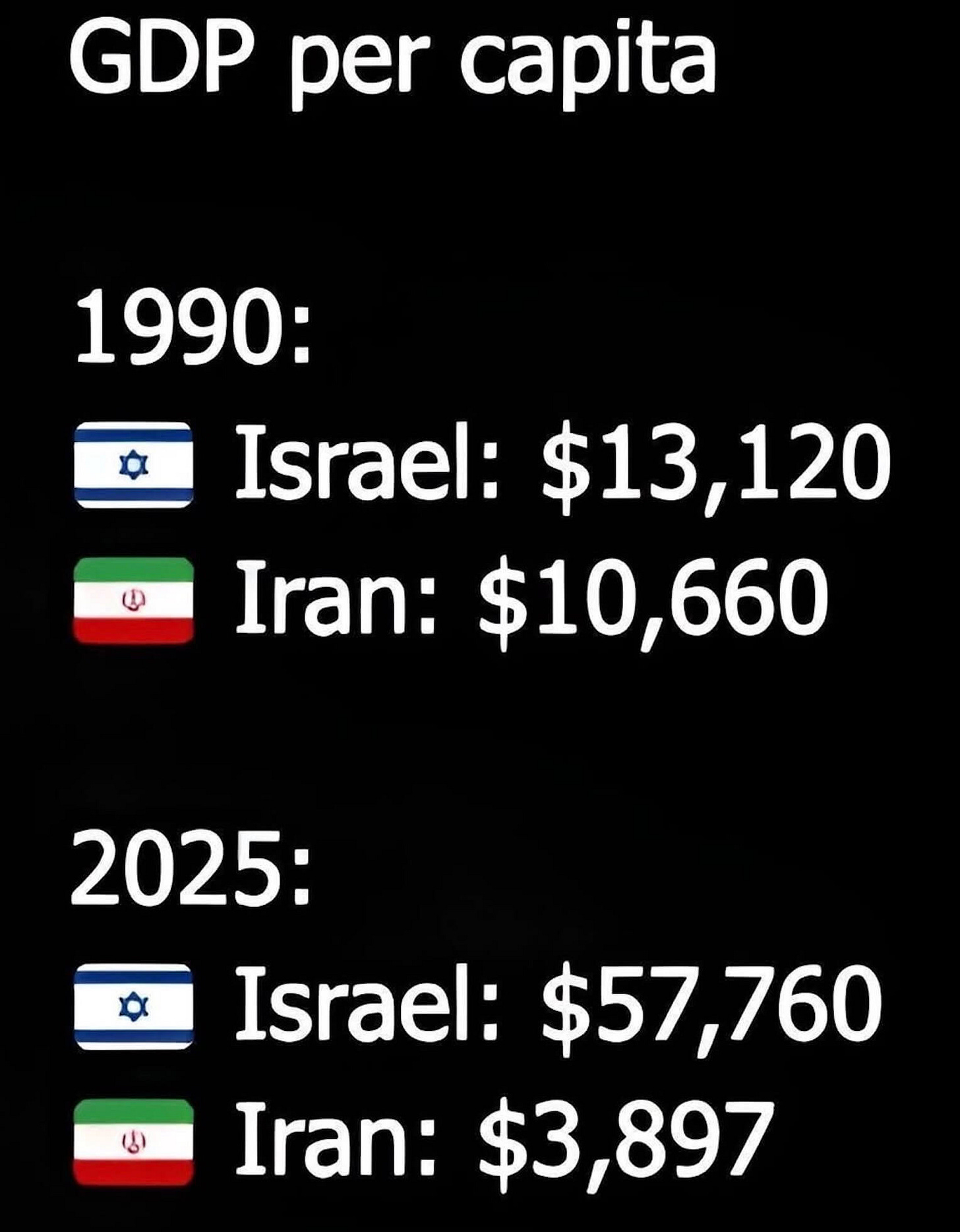
Inciteful, well researched and well written as usual
A few random thoughts! As always you make me think again.
“If life offers you anything better than justice, truth, wisdom, and courage—or in other words, better than the peace that comes from acting in accord with reason or in accord with destiny when events are outside your control—if, as I was saying, life offers you anything better than this, embrace it with your whole heart and enjoy it to the full.”
Marcus Aurelius - Meditations
“Well, the first days are the hardest days
Don't you worry anymore
'Cause when life looks like Easy Street
There is danger at your door
Think this through with me
Let me know your mind
Woah, oh, what I want to know
Is are you kind?”
Uncle John’s Band - The Grateful Dead
“In March, David Shor, head of data science at the Democratic polling firm, Blue Rose Research, told New York Times columnist Ezra Klein during a podcast interview that Gen Z might be one of the most conservative generations.
"This is the thing I am the most shocked by in the last four years — that young people have gone from being the most progressive generation since the Baby Boomers, and maybe even in some ways more so, to becoming potentially the most conservative generation that we’ve experienced maybe in 50 to 60 years," Shor said.”
https://www.foxnews.com/media/gen-zers-identifying-liberal-drops-12-points-since-2016-according-morning-consult-june-report.amp